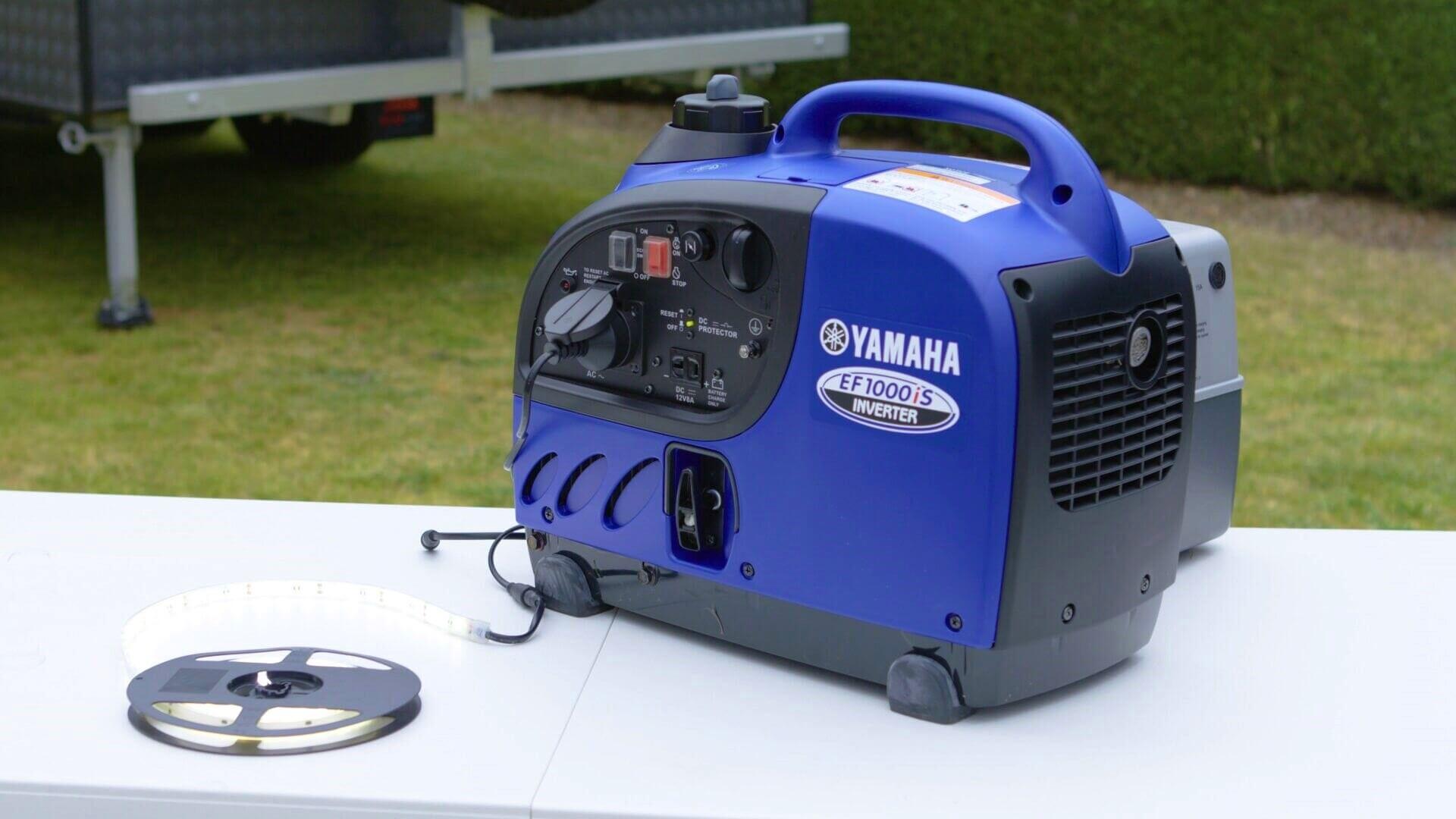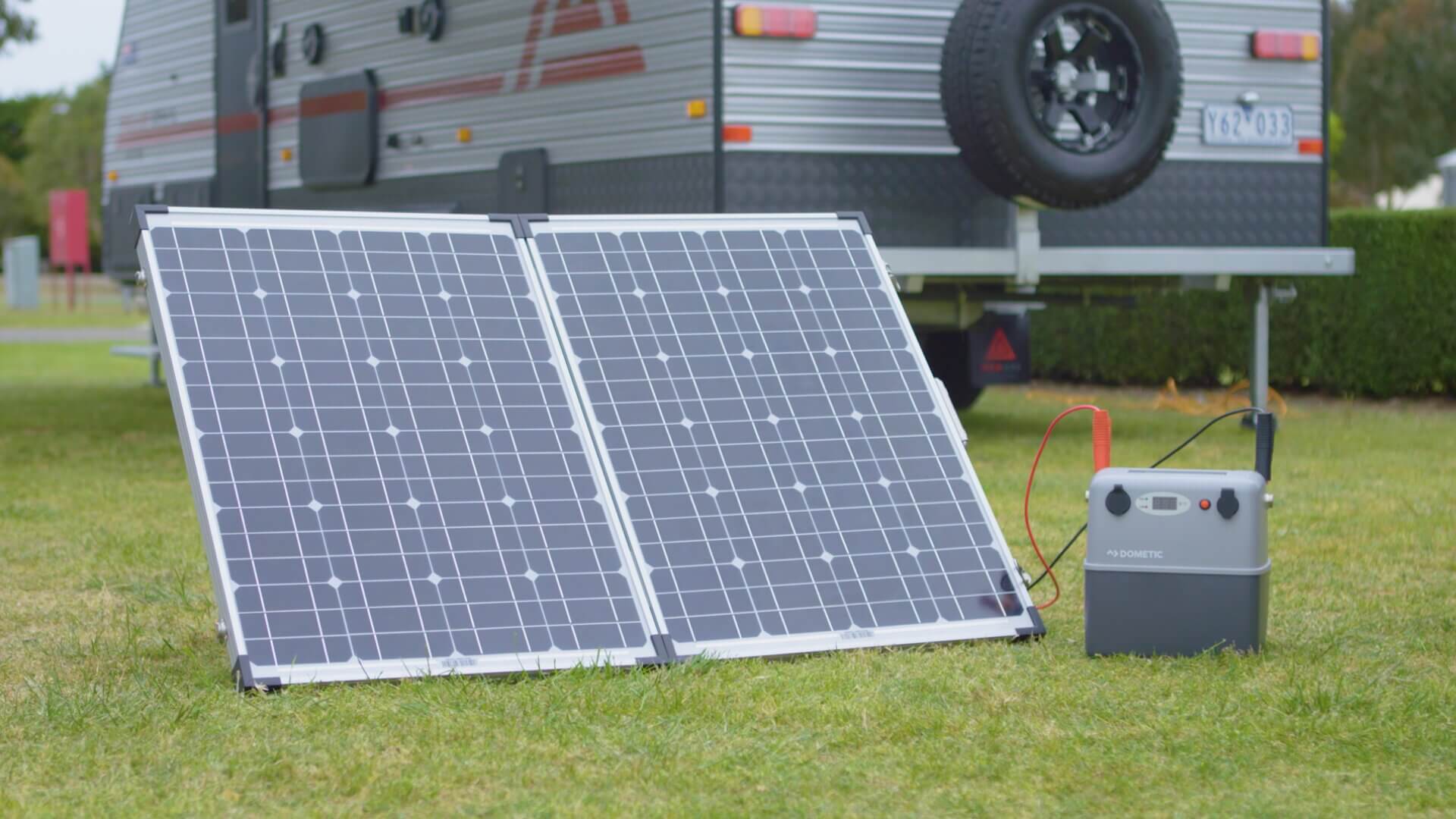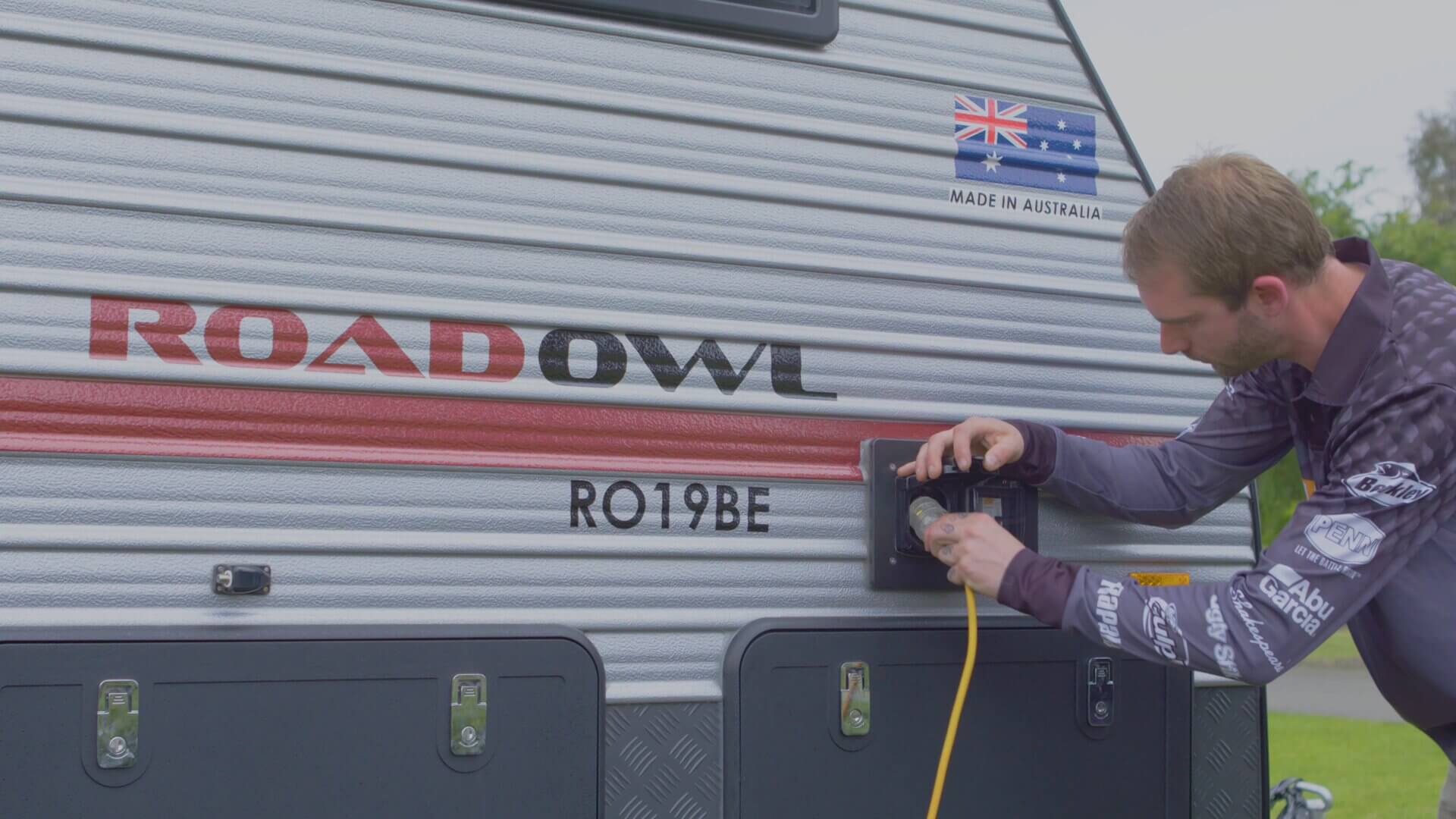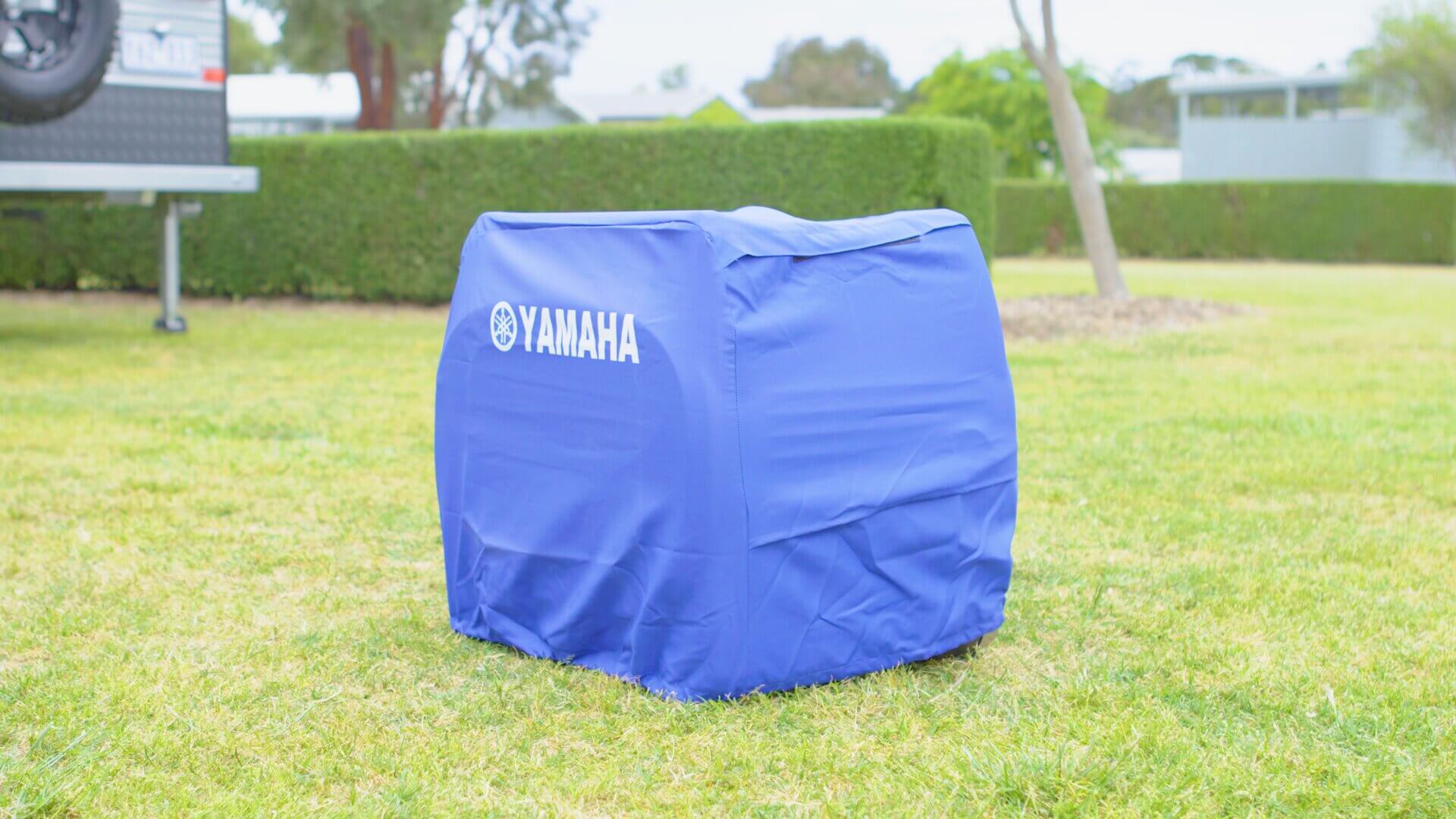| Your browser is not supported. | ||
|
Please browse our site using any of the following options:
| ||
How To Choose The Best Battery Box For Camping

When you go caravanning and four-wheel driving there may or may not be mains power to plug into. Either way, it's worth having another way to power your appliances, as well as everyone's phones, tablets and computers. A portable power source gives you the freedom to camp anywhere (with all the mod-cons that make camping a lot more pleasant), as well as backup power if there's a problem with your caravan or car battery while you're away.
Quick Links:
- What's the best power source for camping and caravanning?
- Different types of portable power sources
- How will you use the portable power source?
- Understanding the power sources
- Safety information
- The quality of the portable power source
- How much are generators, battery boxes and power packs?
What's the best power source for caravanning and four-wheel driving?
The power source that's best for one person may not suit someone else because it depends on:
- What you want to use the power source for (lights, cooking, chargers, tools or a fridge?)
- Whether you just want to power smaller appliances (or larger ones powered by motors?)
- How many appliances and devices you want to power at once (a couple or quite a few?)
- How much space you'll have in the 4WD or caravan (after factoring in people and bags)
- Whether you'll be close to civilisation or in the middle of nowhere (so have to rely on yourself)
- How often you'll be going caravanning or off-roading (for a few days or for weeks at a time?)
Which generator, battery or power source should you buy?
Choosing the right power source is easier when you break it down into these five steps:
1. Type
There are a few ways to power your electrical appliances and charge electronic devices.
Mains Power
If you've got a powered campsite:
- You'll have access to mains power which give you 240V of electricity.
- You can just plug appliances and devices into the mains power points.
Power Bank
A power bank is so compact it fits in your pocket or handbag and:
- Is best for charging phones at festivals and on weekend trips.
- Can charge a phone a few times before it needs to be charged.
4WD Battery
You can power things using the 12V battery that's built into your four-wheel drive with:
- Alligator clips that you attach directly to your 4WD battery terminals (if appropriate).
- A cigarette lighter cable (this is slower because it's a less powerful current).
- A power cup that fits in the cup holder to charge phones/tablets via the cigarette lighter.
- A power inverter that can adjust the voltage from 12V for 240V appliance or devices.
Battery Box or Power Pack
Having a little portable battery box or power pack to power your appliances and devices:
- Means you don't have to use your car battery (so it won't go flat).
- Can be used to jump start a flat car battery (if you ever need to).
- Can be moved around easily (for lights, appliances and devices).
Solar
Solar power captured from the sun's rays during the day can:
- Power appliances and charge devices during the day (and at night if it stores power).
- Charge up the battery that's in your portable battery box or power pack.
Generator
A generator generates more power than the options above and can be used to:
- Power multiple appliances and electronics at the same time.
- Charge deep-cycle batteries (4WD batteries, battery boxes and power packs).
The latest inverter generators are superior to the old traditional generators because they:
- Run quietly (so the generator won't keep anyone awake or annoy your fellow campers).
- Are efficient (so use less fuel to generate power and are more environmentally friendly).
- Keep the voltage consistent (which protects sensitive devices like phones/computers).
- Are a lot lighter (so they're much easier to carry than the heavy traditional generators).
2. Use
Next, decide which of the power sources outlined above suits your needs based on:
- How it'll be used.
- What matters to you.
This depends on:
- What appliances and devices you want to power.
- Will be using it to power appliances or simply charge phones and other devices?
- You'll need a fair bit of power for fridges, microwaves and air conditioners.
- If you want to run multiple appliances at once you'll need more total power.
- Phones, tablets and computers need consistent power (as surges can damage them).
- What type of sockets and ports do your appliances and devices need to plug into? (240V mains socket, 12V cigarette lighter port, 5V USB port, 50A Anderson plug?)
- Whether you're using the power source as primary, secondary or backup power.
- If it's your primary power source you'll use it for everything so it has to be reliable.
- If it's your secondary power source you'll only be using it to power a few things.
- If it's your backup you'll only use it if there's a problem with the main power source.
- How much portable convenience and quiet you want when camping.
- How long do you want it to be able to continuously run for?
- How easy do you want starting it and using it to be?
- Does the amount of noise it makes matter?
4WD Battery
The 12V battery built into your four-wheel drive can be used to power:
- Mobile phones and other devices.
- A flood light for the campsite.
- Anything you can plug into the cigarette lighter.
- Appliances with different voltages if you have a power inverter.
A 4WD battery:
- Is a power source you already have, easy to use and perfect if you're not powering much.
- With a dual battery reduces the risk of your battery going dead in the middle of nowhere.
Generators
Generators are powered by fuel (petrol or diesel):
- If you're using the generator a lot, diesel might be best (for cheaper fuel in the long run).
- Some generators are more efficient and environmentally friendly (as they use less fuel).
Different generators have different designs and features, so consider what matters to you.
The key thing to consider is the fuel tank:
- Size (Litres) - will the fuel last as long as you want? All night to power a fridge/freezer?
- Usage (Litres/hr) - how efficiently will the fuel be used? And how long will it last?
Some generators have:
- An inverter system and Pulse Width Modulation - stops surges/prevents device damage.
- A Smart Throttle - adjusts engine speed to suit usage for more efficiency and less noise.
- Indicators - so it's easy to see how much fuel is left and when the oil needs topping up.
- Automatic features - so it warms up faster, starts easier or switches on if the power fails.
- A remote - so you can start the generator without having to physically walk over to it.
- Protection features - A gasoline petcock and/or overload breaker to prevent damage.
- Noise-reducing features - inverter technology - anti-vibration feet (lower dBA = quieter).
Batteries
Different batteries have different designs and features, so consider what matters to you.
The key thing to consider is amp-hours (Ah):
- The more amp-hours, the longer the battery lasts (assuming the same discharge rate).
- A 44Ah power pack - comes fitted with a 12V battery inside for 44 amp-hours of power.
- A battery box - has to be fitted with a battery (up to 130Ah for longer-lasting power).
You'll also want to know how long the battery takes to charge-will it be fast or take ages?
Some batteries have:
- An LCD monitor - that shows how much battery life is left and how long until it's charged.
- Charging ports and cables for:
- 12V car batteries
- 240V mains power points
- Solar panels
Solar Panels
Solar panels can be used to:
- Power things during the day when the sun is shining (for environmentally friendly power).
- To charge other power sources like your power pack, battery box or power bank.
You can use solar power alongside a generator with an automatic start feature so:
- The generator automatically turns itself on when the solar panel battery runs out.
- You're taking advantage of the sun during the day but not without power at night.
Different solar panels have different designs and features, so consider what matters to you.
The key thing to consider is watts:
- 5 watt solar panel
- A compact little solar panel with an integrated 8 watt/hour battery
- Produces up to 5 watts per hour of power for tablets, phones, lights etc.
- 80 watt solar panels
- These larger panels store more of the sun's power (up to 80 watts).
- Produces up to 5 amps per hour for appliances that need up to 5 amps.
- 120 watt solar panels
- These are the largest panels and store up to 120 watts of the sun's power.
- Produces up to 7.5 amps per hour for appliances that need up to 7.5 amps.
Some solar panels:
- Have a fold out design so they're easier to transport and carry.
- Come with their own carry case so it's easy to keep cables and panels together.
- Have high performance monocrystalline cells which harness more of the suns power.
- Are powerful enough to power a compressor fridge, TV, lights and more all at once.

3. Power
Whatever you're using to power your electrical appliances and electronic devices, you'll need to know a bit about watts.
What's Watts?
The main things to know about watts:
- It's a unit of power to describe what appliances need to run (and devices need to charge).
- Different appliances and devices use a different number of watts (usually in the manual).
- Some appliances need two types of watts:
- Continuous watts - the power needed to run them on an ongoing basis.
- Surge watts - the power surge needed to turn them on. Appliances with motors and heat elements use surge watts (e.g. fridge, microwave, hair dryer, coffee machine).
- If you don't know your appliance watts and need to work it out:
- Write down your power Voltage (the electricity push strength) - e.g. 240 volts from a mains power point or 12 volts from a 12V battery.
- Write down the appliance or device amps (the amount of electrical charge flowing per second) - e.g. a 10 amp phone charger (check the box or manual).
- Multiply the Voltage and Amps to get the Watts e.g. 12V x 10amps = 120 Watts.
Different power sources describe the power output they generate in different units.
Solar Power
Use Watts to describe the power they generate.
Batteries
Are described in Ah (amp-hours):
- A battery box or power pack with a higher Ah generates more power than a lower Ah.
- Choosing the right size battery is important - if the Ah is too low it won't power everything you want to for long enough (so you'll need to constantly charge the battery).
Generators
Use kVA (kilo Volt Amps) to describe the power they generate.
- 1kVA = 1000 Watts, which is about 640 Watts of continuous usable power because:
- Most appliances can't use 20% of the generator power.
- Only 80% of a generator's capacity should be used so it works efficiently and lasts.
- A higher kVA generators generates more power than a lower kVA generator.
- Choosing the right size generator is important because:
- Too few kVAs and it won't power everything you need it to properly.
- If the kVAs are high but you're not using them you'll waste fuel.

How much power do you need?
That depends on what you're powering. The more appliances and devices you want to power, the more watts you'll need from your power source.
To work out how much power you need:
- List all of the appliances and electronics you'll be using at the same time and their watts.
- Add up the watts needed to start them (surge watts) and run them all (continuous watts).
- This gives you the total watts you'll need your power source to generate at once.
Here are some typical average power requirements:
Tools or Appliances | Running Watts | Surge Watts |
Cell Phone Battery Charger | 10 | 0 |
Laptop Computer (Home/RV/Camping/Tailgate) | 75 | 0 |
PDA, iPod, iPhone, Blackberry, Cell Phones | 80 | 0 |
13-Inch TV (Home/RV/Camping/Tailgate) | 100 | 0 |
Outdoor Bug light (RV/Camping/Tailgate) | 100 | 0 |
20-Inch Box Fan | 200 | 0 |
Video Game Console | 200 | 0 |
Refrigerator - Dorm Size (Home/RV/Camping/Tailgate) | 350 | 500 |
Food Processor/Blender (RV/ Camping/Tailgate) | 350 | 500 |
Single Element Hot Plate (Home/RV/Camping/Tailgate) | 750 | 0 |
Toaster (Home/RV/Camping/Tailgate) | 1250 | 0 |
Please note:
Different size appliances or tools will vary so check the appliance, the product manual, or the supplier's website for the continuous and surge wattage of your device.
Also think about the size of your power source:
- Will it fit in the car or caravan (factoring in all the people, bags and gear)?
- Does it have a carry handle with a comfortable grip so it's easy to set up and pack up?
- Is it too big/heavy/awkward to carry (so do you want one with wheels and a handle)?
How long will the power last?
That depends on:
- The power source.
- What you're powering.
- How long you're powering the appliances/devices for.
To work out how long your generator can run for continuously before it needs to be refuelled:
- Write down the usable watts it generates (e.g. 640 watts for a 1kVA generator).
- Write down the total watts needed to power all your appliances/devices (e.g. 400 watts).
- Divide the first number by the second number (e.g. 640 watts/400 watts = 1.6 hours).
To work out how long a battery or solar panel can run for continuously before it needs charging:
- Write down its Ah (e.g. a 130Ah battery box).
- Write down the total watts needed to power all your appliances/devices (e.g. 200 watts).
- Multiply the watts needed by the number of hours you want everything to run for each day (e.g. 200 watts x 2 hours = 400 watt-hours).
- Divide this number (400 watt-hours) by 12 (the battery voltage) to get the total amp-hours needed per day (e.g. 400Wh/12V = 50amp-hours needed).
- Divide the battery power Ah (130Ah) by the amp-hours needed each day (50) to get how long the battery will last before it needs charging (130Ah/50Ah=2.6 days).
If you're only powering one thing with your battery:
- Say you've got a 130Ah battery and your lights need about 8Ah (100 watts/12V=8Ah).
- If you're using them for 3 hours a day, you'll need 24Ah per day (8Ah x 3hrs/day).
- So your 130Ah battery can power them for five days (130Ah/24Ah=5.4 days)
Battery Basics
A few other helpful things to note about batteries:
- If you're using 12V of power from a battery it will last longer than if you're using 240V.
- Compare how much power different appliances use (how fast they drain your battery).
- A fridge drawing 3-4 amps per hour drains a battery faster than one drawing 1-2 amps.
- If you're running appliances off your car's built-in 12V battery, to avoid being stranded:
- Make sure you take a charger in case the battery goes flat.
- Invest in a low voltage protector so your battery won't go flat.

4. Safety
To ensure you and your loved ones are safe:
- NEVER use a generator inside - it releases poisonous carbon monoxide which can kill.
- NEVER leave a generator on when you're not around - it could start a catastrophic fire.
- NEVER add fuel to a generator when it's hot - the heat could cause the petrol to spark.
- BE CAREFUL! Be as careful with portable power as you are with the power at home.
Protect your power!
To ensure your power source lasts and doesn't let you down in the middle of nowhere:
- Follow the manual instructions.
- Always maintain it properly.
5. Quality
When weighing up which power source to buy, think about quality versus cost:
- A power source with more watts powers more at once/for longer so is more expensive.
- A generator powered by diesel fuel costs more to buy, but the diesel to run it is cheaper.
- Inverter generators are quieter and protect phones and computers from power surges.
- A cheap power source may not give you reliable power-important for fridges/freezers!
When it comes to how much you should spend on a power source:
- If you're only going out in your four-wheel drive or caravan for weekends occasionally, a cheaper power source will do.
- If you're travelling for a long time or going off-roading pretty frequently, it's probably worth investing in a powerful inverter generator that's made to last.
- If you'll use the generator at home during power outages you'll need to strike a balance between enough power to run home appliances and small enough to take camping.
- If you're buying a generator, it's worth getting a cover to protect the motor from dust and sand damage so it lasts as long as possible.
How much are generators, batteries and other power sources?
Anaconda has:
- 12V batteries and battery boxes from $80 to $550.
- Power packs from $299 to $499.
- Solar panels from $150 to $550.
- Generators from $1500 to $2500.
When you go to the Camping & Hiking section on the Anaconda website and select Power, you'll see tick box filters down the left hand side of the page. Using these filters makes working out which power sources to buy simpler because you can choose to filter what you see by:
- Category - so you only see generators, solar, other power sources (or 4WD gear as well).
- Price - so you only see power sources that are within your budget on the page.
- Deal - so you only see power sources that are on sale or at clearance prices.
- Brand - so you can see power sources made by a specific brand.
Still not sure which power source you need?
Visit your nearest Anaconda store and ask our friendly team for help.
Other Camping & Hiking Essentials
Check out Anaconda's range of Camping & Hiking products available online or visit your local store.